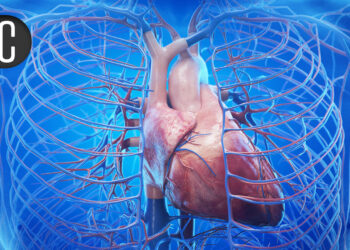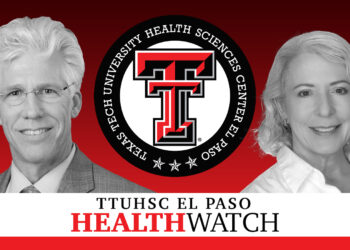Evidence that major communicable diseases, including influenza, pneumococcus, and COVID-19, can lead to cardiovascular disease has prompted the European Society of Cardiology (ESC) to issue a consensus statement calling for routine vaccinations as a part of managing cardiovascular risk.
Beyond preventing complications of the target infectious diseases, “vaccinations have profound effects on the CV [cardiovascular] risk and as such should be considered the fourth pillar of medical CV prevention besides antihypertensives, lipid-lowering drugs, and medications that treat diabetes,” the statement read.
The idea is not entirely new. In 2021, the society issued guidelines for heart failure that recommended flu and pneumococcal vaccinations to prevent hospitalizations from heart failure. In the 2023 guidelines on acute coronary syndromes from the American Heart Association (AHA) and American College of Cardiology (ACC), annual vaccination against flu was recommended for patients with a chronic coronary disease “to reduce cardiovascular morbidity, cardiovascular death, and all-cause death.”
The new statement differs by reviewing the “extent to which infectious diseases can trigger CV morbidity and mortality,” an area with an expanding amount of data to provide evidence-based recommendations, according to Thomas F. Lüscher, MD, one of the corresponding authors of the document.
In supporting vaccination as a major tenet of prevention, the statement provides “more visibility and much more in-depth evidence than has been the case in the guidelines,” said Lüscher, who is the current president of the ESC and a consultant cardiologist at the hospital associated with King’s College and the Imperial College in London, England.
Due to a substantial increase in research regarding a variety of vaccinations, such as those for SARS-CoV-2 and respiratory syncytial virus (RSV), the statement is timely, Lüscher said. So far, on the basis of “reasonably solid evidence,” vaccinations for influenza, SARS-CoV-2, and pneumococcus can all be recommended for reducing the risk for CV events.
Citing several mechanisms by which infectious diseases contribute to CV risk, such as increased oxygen consumption by the myocardium and upregulation of inflammatory pathways, Lüscher and his coauthors predicted vaccinations for other infectious diseases are likely to join the list recommended for risk reduction when more evidence accrues. The ongoing registry-based randomized DAN-RSV trial now underway in Denmark aims to enroll 130,000 people and may provide evidence for RSV in particular, he and his colleagues stated.
Vaccines applied for general public health must show a favorable benefit-to-risk ratio to gain regulatory approval. For patients with comorbidities, the relative protection from an acute disease might be even greater, but the consensus statement makes clear people with coronary artery disease receive an additional health benefit from at least some of these vaccines through reduced CV risk.
Major complications from immunizations occur in fewer than 10 per 100,000 patients for approved vaccines and are generally controlled with prompt treatment, according to the ESC statement, citing multiple studies. Milder adverse events, such as injection site reactions or transient flu-like symptoms, are tolerable and, again, are outweighed by reducing the risk for CV events, the document stated.
Myocarditis has been reported as a rare reaction to the SARS-CoV-2 vaccine, but this complication appears to occur mainly in younger men, typically resolves spontaneously, and is rarely severe. In addition, the authors of the consensus statement noted the risk for myocarditis from untreated COVID-19 has been estimated to be sixfold higher than myocarditis related to vaccination.
According to the consensus statement, the strongest evidence for a CV benefit has been generated from trials with influenza and pneumococcal vaccines.
In the multicenter double-blind IAMI trial, for example, which randomly assigned patients after an acute myocardial infarction to influenza vaccine or placebo, immunization was associated with a 41% reduction (P < .014) in the risk for CV death over 12 months of follow-up.
In a meta-analysis of studies evaluating the pneumococcal polysaccharide vaccine, protection was associated with a 10% reduction (95% CI, 0.84-0.99) for any CV event, including acute myocardial infarction, for patients aged 65 years or older.
Observational data support a CV benefit from the SARS-CoV-2 vaccine, but the rationale is mostly supported by the evidence of protection from severe COVID-19 and long COVID, according to the consensus statement.
No comparable document from the AHA/ACC has so directly addressed the role of vaccinations in reducing CV risk, but an AHA spokesperson, Suzanne Grant, vice president for Media Relations & Issues Management (National), pointed out that the 2025 AHA/ACC guidelines for the management of acute coronary syndromes gave annual influenza vaccination a level 1A recommendation for the specific goal of reducing the risk for major CV events.
Other infectious diseases do not appear in those guidelines; however, the AHA spokesperson noted the evidence makes clear “infections can trigger or worsen CV events in people with existing heart disease” and, so, supported the premise that vaccinations, at least for influenza, should be administered specifically for cardiac risk reduction.
Lüscher noted the ESC consensus statement is not a new set of guidelines but rather an intensive review of evidence to guide clinicians in regard to this area of risk management. The timing is based mainly on the growing accrual of new evidence, but Lüscher acknowledged a second rationale for surveying the evidence.
“Another aspect is the conspiracy theories on vaccination,” he said. “Here, we provide solid evidence that vaccination is more than just prevention or reducing the severity of infection but, indeed, has long-term benefits.”
Lüscher reported financial relationships with Abbott, Amgen, AstraZeneca, Bayer Healthcare, Boehringer Ingelheim, Cytokinetics, Daiichi Sankyo, Eli Lilly and Company, Novartis, Novo Nordisk, Sanofi, and Vifor.
Source link : https://www.medscape.com/viewarticle/cardiovascular-events-europeans-add-vaccination-fourth-major-2025a1000i1c?src=rss
Author :
Publish date : 2025-07-08 11:04:00
Copyright for syndicated content belongs to the linked Source.








